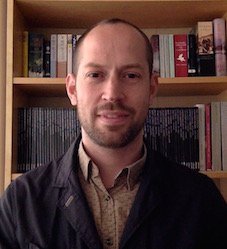
Explain a little about your most recent project and how it involved the UK Biobank
Over the past decade, several of my PhD students have used UK Biobank data as part of their research projects. It’s an incredibly valuable resource that complements the more experimental work typically at the core of a PhD.
For example, Liz McManus used Biobank data to explore whether significant life stressors in childhood or adulthood have similar effects on the brain and cognitive function. Her recent findings suggest that childhood stressors tend to have a stronger impact. She also showed that changes in the brain’s white matter microstructure may help explain these cognitive effects. Building on this, Meg Sheppard is now investigating whether specific brain regions are particularly vulnerable to adverse childhood experiences—and why that might be the case.
Another student, Katie Moran, focused on how cerebrovascular risk factors in adulthood—such as diabetes, high blood pressure, elevated BMI, and smoking—affect white matter and cognition. Her study revealed that the frontal regions of the brain are especially susceptible to these changes. She also found that these effects are most evident in tests of processing speed—that is, how quickly we can take in, make sense of, and respond to information.
In all these cases, the UK Biobank provided an extensive dataset combining biological, demographic, and behavioural information. While it isn’t without limitations—particularly in terms of the depth of cognitive data—it’s an invaluable tool for exploring large-scale patterns and addressing important research questions at scale.
How did you hear about the UKB community?
I attended one of the UKB User Group events, just before the Covid lockdown. It seemed a useful way to share information on good practice across the University. There are some challenges to setting up projects, and to running them with the new UKB analysis platform, so having others to work with on this has been great. Also the CaDIR co-ordinator from Research IT, Gillian Sinclair, does a stellar job in planning out and organising everything behind the scenes.
What is your role at the University and how does it interact with the UKB community?
I am currently deputy Head of the Division of Psychology, Communication and Human Neuroscience. I also sit on the UoM UK Biobank steering group. The former role has been useful for flagging the support offered by the User Group to others working in MRI/ cognitive neuroscience. Sitting on the UKB steering group has meant I can help to reduce barriers for others wanting to work with this resource (including our recent access charge call). We aim to provide training and advice that can allow others to make the most of what the UK Biobank offers.
What would you like to see the UKB community doing over the next 12 months?
Obviously we’d like to see it grow in UoM! There are many different research groups across the different faculties working on different aspects of the data. Hearing about the discoveries being made and the types of analyses being carried out would be great. For example, in one of last year’s UKB User Group meetings, Prof Martin Rutter discussed his work on associations between sleep quality and health. Fretting about that caused me a few sleepless nights. The UKB has also just released a huge collection of sleep questionnaire results – so it’ll be interesting to hear what insights that brings.
How can members of the UKB community support you / get involved?
First thing would be for people to join our UK Biobank User group Teams Channel, which is part of the CaDiR efforts. Attend a meeting. Then if you’d like to help out more, reach out to the organisers.
What do you enjoy most about using the UKB?
Having access to such a large dataset is changing the way we run our analyses. We now work closely with computational neuroscientists and computer scientists, so old dogs are learning new tricks!
Fun fact!
The biobank has data from 500,000 volunteers. Of these, nearly 100,000 wore fit bits for a week. This provides 100 billion data points just from physical activity alone. Quite the resource.
The UoM UK Biobank Users community is just one of many special interest and user groups under the CaDiR (Computation and Data in Research) banner. All the groups are open to University of Manchester staff and PGRs..

